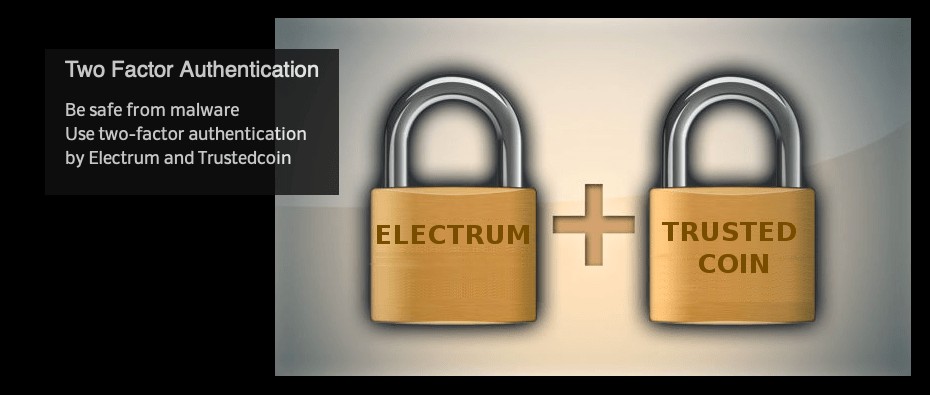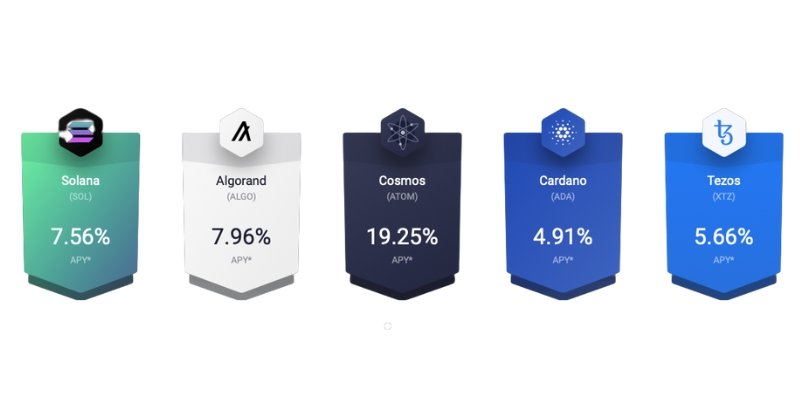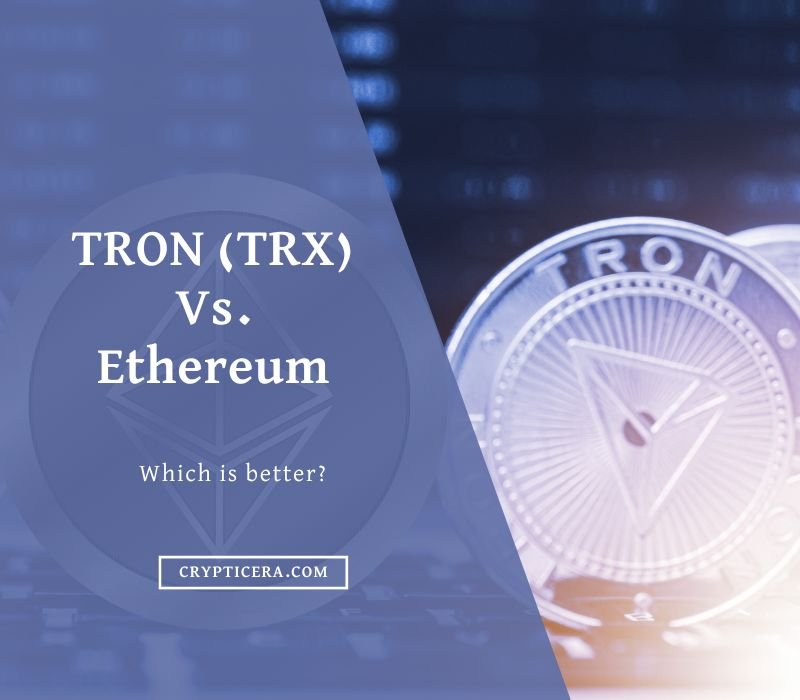Cryptocurrency has been gaining immense popularity in recent years, and the use of wallets to store and manage digital assets has become a necessity. There are numerous cryptocurrency wallets available in the market, and two of the most popular ones are Exodus and Electrum.
In this blog post, we will be comparing Exodus and Electrum Wallet, taking a deep dive into their features, security, user interface, and overall user experience.
So, let’s get started…
Exodus and Electrum Wallet Overview
Exodus is a desktop and mobile wallet that supports over 300 cryptocurrencies. It is a user-friendly wallet that offers an intuitive interface and easy-to-use features such as one-click exchange and portfolio tracking.
Exodus also offers users the ability to earn rewards on their cryptocurrency holdings through its built-in staking feature. Additionally, Exodus has a built-in exchange that allows users to swap cryptocurrencies without leaving the wallet.
Electrum, on the other hand, is a desktop wallet that is specifically designed for Bitcoin. It is an open-source wallet that offers advanced features such as support for hardware wallets, multi-signature transactions, and the ability to create custom transaction fees.
Electrum is known for its security and privacy features, such as support for Tor and the ability to create offline transactions.
Read: Exodus Wallet Review and Electrum wallet Review
Comaprison between Exodus and Electrum wallet
| Key Points | Exodus Wallet | Electrum Wallet |
|---|---|---|
| Website | https://www.exodus.com/ | https://electrum.org/ |
| Platform Compatibility | Available for Windows, Mac, Linux, iOS, and Android | Available for Windows, Mac, Linux |
| User Interface | User-friendly with an intuitive design and sleek interface | Has a more technical interface designed for advanced users |
| Security Features | Uses AES-256 encryption and offers two-factor authentication, password protection, and seed phrase backup | Offers seed phrase backup and supports hardware wallets for added security |
| Open Source | ✔️ | |
| Supported Cryptocurrencies | 250+ | Supports only Bitcoin |
| Transaction Fees | High | Low |
| Customer Support | Offers 24/7 support through email and live chat | Offers email support and a community forum for assistance |
| Mobile Functionality | ✔️ | |
| Staking | ✔️ | |
| Hardware Wallet | Ledger and Trezor, 2 more | Ledger, Trezor |
| Multisig wallet | ✔️ |
Exodus vs Electrum: Supported Cryptocurrencies
Exodus supports over 300 cryptocurrencies, including popular ones like Bitcoin, Ethereum, Litecoin, Ripple, and many others. It also supports a number of ERC-20 tokens, which are tokens that run on the Ethereum blockchain. Additionally, Exodus allows users to trade between different cryptocurrencies directly within the wallet, without the need for an external exchange.
Electrum, on the other hand, is a Bitcoin-only wallet, meaning it only supports the Bitcoin cryptocurrency. However, it is a very popular and well-regarded wallet in the Bitcoin community
Exodus vs Electrum: Security 🔒

Both Wallets offer strong security measures for cryptocurrency storage. Exodus has a more user-friendly interface with a built-in security center, while Electrum has more advanced features like multi-signature support.
Private keys
Both Exodus and Electrum store private keys locally on the user’s device, which means that they don’t share these keys with any third-party servers. This is a crucial security feature as it ensures that only the user has access to their funds.
Private keys are used to sign transactions and are needed to access cryptocurrency stored in a wallet. By keeping private keys on the user’s device, both Exodus and Electrum ensure that the keys are not exposed to any online threats.
Two-factor authentication
Exodus supports two-factor authentication (2FA) by default, while Electrum requires a plugin to enable this feature. 2FA adds an extra layer of security to the login process, making it harder for attackers to access the user’s wallet. Exodus supports 2FA using Google Authenticator or Authy, which are widely used 2FA apps.
Multi-signature support
Electrum supports multi-signature transactions, which require multiple signatures from different devices or users to authorize a transaction. This feature adds an extra layer of security to the wallet as it ensures that no single device or user can authorize a transaction.
Multi-signature transactions are typically used by organizations or individuals who want to store large amounts of cryptocurrency in a single wallet. Exodus doesn’t currently support multi-signature transactions.
Exodus vs Electrum: Fees
Electrum is generally considered to be the more cost-effective option compared to Exodus. This is because Electrum allows users to set custom transaction fees based on their preferences. Exodus also support customizable Fees Structure.
Exodus charges a markup on top of the network fees (not always), which can further increase the cost of transactions. This markup is not fixed and can vary based on market conditions, so users may end up paying more in fees than they need to.
In contrast, Electrum provides users with detailed information about the current state of the Bitcoin network, including the average transaction fees and estimated confirmation times. This information can help users make informed decisions about their transactions and set fees that are appropriate for the current market conditions.
Exodus vs Electrum: Staking

Exodus supports staking for several cryptocurrencies, including Ethereum, Cardano, and Cosmos. Staking is a way to earn rewards by holding cryptocurrencies and participating in the network’s consensus process.
Electrum, on the other hand, does not currently support staking. It is primarily designed as a Bitcoin wallet.
Exodus vs Electrum: Open-Source
Electrum is fully open-source and its source code is freely available for anyone to review, modify, and distribute. This means that anyone can verify that the code is secure and that there are no backdoors or other vulnerabilities. Additionally, the open-source nature of Electrum allows developers to contribute to the project and improve its features.
Exodus, on the other hand, is not fully open-source. While some parts of the software are open-source, others are closed-source and not available for review.
Exodus vs Electrum: Ease of Use
Exodus is known for its simple and user-friendly interface. It’s designed to be easy to use, even for beginners who are new to cryptocurrency. Exodus has a clean, modern interface with intuitive menus and icons, making it easy to navigate and understand. Additionally, Exodus has a built-in exchange feature that allows users to easily exchange one cryptocurrency for another without leaving the wallet interface.
Electrum, on the other hand, is more advanced and may be better suited for users who have some experience with cryptocurrency.
Is Exodus and Electrum Hardware Compatible
Exodus supports a wider range of hardware wallets than Electrum. Exodus is compatible with Trezor, KeepKey, and Ledger wallets. Electrum only supports Ledger and Trezor wallets.
In addition, Exodus offers a unique feature called “Exodus Eden,” which is a beta version of their wallet that supports additional hardware wallets such as BitBox and SecuX.
Pros and Cons of Exodus Wallet
Pros 👍
- User-friendly interface that is easy to use, even for beginners.
- Supports a wide range of cryptocurrencies and tokens.
- Offers in-wallet exchange services that allow users to easily swap one cryptocurrency for another.
- Provides a built-in portfolio tracker that shows the value of your digital assets.
- Offers strong security features, such as two-factor authentication and backup options.
Cons 👎
- Closed-source software, which means that the code is not publicly available for auditing.
- Higher fees than some other wallets for certain transactions.
- Not a fully decentralized wallet as it relies on third-party services for some functionalities.
Pros and cons of Electrum Wallet
Pros 👍
- Strong security features
- Simple and user-friendly interface
- Compatible with different operating systems and hardware wallets
- Customizable transaction fees and security options
Cons 👎
- Not staking support
- No altcoin support
- No mobile app
- Requires some technical knowledge to use advanced features
Final Thoughts (Which is better)
Exodus is a user-friendly wallet with a modern interface and built-in exchange features. It supports staking for several cryptocurrencies, but some parts of its software are closed-source.
Electrum is an advanced wallet with more technical features, such as the ability to set custom transaction fees and manage private keys. It is fully open-source and has a community of developers contributing to the project. However, it does not currently support staking.
FAQs
Is Electrum safer than Exodus?
Electrum is considered a more secure option than Exodus, primarily because it is an open-source wallet that has been around since 2011 and has a strong reputation for security. Electrum is also a “thin client” wallet, which means that it downloads only a portion of the blockchain, making it faster and less vulnerable to attacks.
Is Exodus ever hacked?
Exodus has not been hacked to date, but no wallet is entirely immune to hacking. Like all wallets, Exodus can be vulnerable if a user falls victim to phishing attacks or downloads malicious software. However, Exodus has a good reputation for security and is constantly updating its features to provide better protection for its users.
Is Electrum the best wallet?
Electrum is considered one of the best wallets for Bitcoin, but it may not be the best choice for every user. It is a feature-rich wallet that provides advanced security features, but it can also be complex to use for new users. Other popular wallets include Ledger Nano S, Trezor, and Coinbase Wallet.
Related



